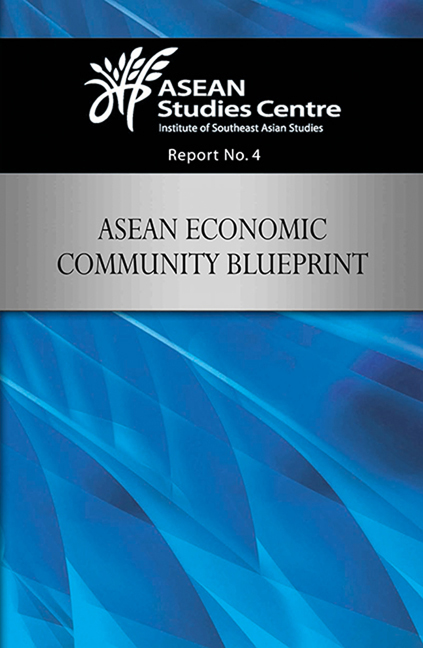Book contents
- Frontmatter
- Contents
- Introduction
- I ASEAN Roundtable 2008: ASEAN Economic Community Blueprint
- II Background Papers
- 1 Tackling Non-Tariff Barriers in ASEAN
- 2 Regional Framework for Competition Policy and AEC
- 3 Achieving an Integrated ASEAN Economic Community: The Role of Infrastructure Development?
- 4 How Less Developed Economies in Southeast Asia Can Participate in Production Networks: Industrial Policy in the WTO and FTA Era
- Annex I Programme of the ASEAN Roundtable 2008
- Annex II List of Participants
- Annex III List of NTBs Affecting the ASEAN Priority Sectors for Integration
2 - Regional Framework for Competition Policy and AEC
from II - Background Papers
Published online by Cambridge University Press: 21 October 2015
- Frontmatter
- Contents
- Introduction
- I ASEAN Roundtable 2008: ASEAN Economic Community Blueprint
- II Background Papers
- 1 Tackling Non-Tariff Barriers in ASEAN
- 2 Regional Framework for Competition Policy and AEC
- 3 Achieving an Integrated ASEAN Economic Community: The Role of Infrastructure Development?
- 4 How Less Developed Economies in Southeast Asia Can Participate in Production Networks: Industrial Policy in the WTO and FTA Era
- Annex I Programme of the ASEAN Roundtable 2008
- Annex II List of Participants
- Annex III List of NTBs Affecting the ASEAN Priority Sectors for Integration
Summary
The interaction of competition policies of different countries is, to some extent, affecting the international business environment. The integration of different countries under one single market will face the problem of unequal playing fields within the market created by such different policy arrangements. In addition, the formation of a single market implies the need to supervise more complex and broad economic activities, along with the increasing probability of growing anti-competitive activities at the international level. These reasons raise the question of whether anti-competitive activities within the market can be tackled.
This paper elaborates on the basic wisdom of having a single market within the ASEAN region and the need to institutionalize a framework to ensure the efficient functioning of the market. It also explains the option of a competition policy framework that could be implemented in the AEC, and the challenges to establish a well-functioning regime of competition.
Role of Competition in Economic Development
The benefits of a competitive regime within countries are many and subtle. The rewards from adopting competitive principles to foster economic performance will eventually help to narrow the economic development gap between nations. Although result may vary among nations, the effect can be easily seen in how it directly affects consumer welfare by increasing the amount of choices for consumers in goods and services.
Despite cultural differences, the basic attitudes that make a market work exist in all countries. Competition principles of the market call for the efficient use of resources and thus allocates resources to their utmost utilization. From the consumer's standpoint, this would be a great achievement since they would have more choices of goods and services at more affordable prices. The ongoing competition that would benefit consumers is the one that, as the time goes by, provides consumers with more innovative and usable goods and services at more affordable prices. This is true as competitive products are compelled to improve over time. Typical consumers and producers from different countries would eventually have identical perspectives regarding welfare improvement as the basis of measuring the benefit of competition over time.
- Type
- Chapter
- Information
- ASEAN Economic Community Blueprint , pp. 30 - 42Publisher: ISEAS–Yusof Ishak InstitutePrint publication year: 2009



